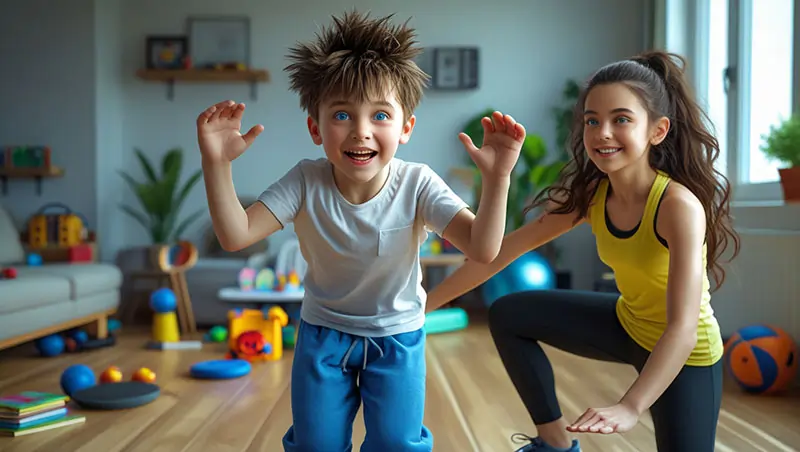Is it Safe to Put Your Child on ADHD Medication?

A lot of parents are concerned about their child’s inability to focus or other behavior issues. However, it is not always easy to make a decision regarding medication. You probably want the best for your kid, so it is important to understand ADHD and the types of medications that can effectively treat the symptoms.
Let’s look at some of the signs of ADHD in children first, then we can check out the types of medications and the potential side effects.
ADHD Symptoms in Children
Any child can have difficulty paying attention at times, so how can you know if it is ADHD? Let’s look at some of the symptoms and how you may know if it is time to seek help.
ADHD stands for attention deficit hyperactivity disorder, and it is a behavior disorder commonly diagnosed during childhood. The main characteristics include inattention, impulsivity, and hyperactivity. A child does not necessarily have to show all three symptoms to have ADHD.
Inattention is often observed as having a short attention span. While nobody expects a child to have the attention span of an adult, kids that have ADHD will often have a shorter attention span than other their age. They may also have difficulty paying attention and listening to others, which can cause problems at school.
A child with ADHD may have a tendency to get distracted easily and may even become forgetful (although a lot of children that do not have ADHD are also forgetful). They may also have difficulties with organization and task completion.
One of the more common signs of ADHD that people often disregard is a focus on themselves. They may not be able to recognize other people’s needs as easily as other children.
The impulsivity aspect of ADHD can cause children to interrupt other people. They may also have a hard time waiting in lines or taking turns with other kids. They may also have a hard time with raising their hand and waiting for the teacher to call on them. Impulsivity can also cause risk taking behaviors.
Finally, hyperactivity can manifest itself as constant energy and motion. While motion can be healthy, a child with ADHD may constantly move for no other reason than the movement itself. This can lead to fidgeting and excessive talking. This can also cause behavior problems at home and at school.
ADHD can also make it more likely for a child to develop anxiety and depression, especially when left untreated. If you are concerned about your child’s behavior, you may want to consider counseling. While medication can be effective, counseling can be an alternative that does not cause side effects. Check out BetterHelp for more information or to find an online therapist.
ADHD Medication
There are several different kinds of medications that are approved for the treatment of ADHD. Some are approved for children as young as 6 years old. They can also be highly effective.
You may want to consider medications if the symptoms of ADHD are interfering with your child’s life. ADHD can make it difficult for some kids to concentrate in class, to make friends, or to control their emotions.
Stimulants are the most commonly prescribed ADHD medications for children. Methylphenidate and amphetamine-based options are available. These types of medications can increase the neurotransmitter dopamine in the brain and can help with focus and concentration and limit impulsivity and other hyperactive behaviors.
There are also non-stimulant ADHD medications available for children. These options are good if your child does not tolerate stimulant medications or if they do not seem to be working.
Side Effects of ADHD Medications
There are some side effects of ADHD medications that it is good to be aware of if you are considering medication for your child or if they are already on ADHD medicine.
One very common side effect of stimulants is a loss of appetite. Adequate nutrition is important, and you do not want you child to completely avoid food. Sometimes, this effect only lasts a little while after taking the medication. After it wears off, you child could be extremely hungry and irritable. If you encounter this side effect, you should tell the prescribing doctor to find a plausible solution.
Sleep problems are another potential side effect of stimulant ADHD medication. This is most common in younger children or those who already have trouble falling asleep before they began taking the medication. Sometimes, this side effect goes away over time, but if you child is losing sleep, you need to talk to the doctor.
A small number of kids on ADHD medications will also experience some behavioral changes when the effects of the stimulant wear off. This can make them more emotional or irritable, but the effect is generally mind. There are solutions that can help with this side effect as well.
One of the side effects that parents are often concerned about is changes in mood. This may occur if the dose of a stimulant is too high and can cause a child to zone out or look sedated. They may also become very emotional or aggravated. Some children may also develop anxiousness or restlessness with stimulant medications.
While the changes in mood are most likely to occur when a dose is too high, they can become present in adequate dosages in some children. In those instances, it is best to try a new medication to see if these changes go away.
What if the Medication is Not Working
If the medication is not working or if it is causing side effects, there are some options. The first is to adjust the dose. This could mean that the dose is decreased to reduce or eliminate side effects or increased to make it more effective.
The other option is to change medications. In some cases, this means to switch to a different stimulant and in others it means a switch to a non-stimulant medication option.
In some cases when it appears that the medication is not working at all, it could be an ADHD misdiagnoses. A reevaluation of the diagnoses can often lead to more accurate diagnoses.
Conclusion
A lot of parents are concerned about putting their child on ADHD medication. However, these medications can limit the symptoms associated with ADHD and allow you child to function better in school and at home. It is good to know about the side effects so that you can address them if your child begins to develop insomnia, lack of appetite, mood changes, or any other concerning signs.
Author Bio: Marie Miguel has been a writing and research expert for nearly a decade, covering a variety of health- related topics. Currently, she is contributing to the expansion and growth of a free online mental health resource with BetterHelp.com. With an interest and dedication to addressing stigmas associated with mental health, she continues to specifically target subjects related to anxiety and depression.


